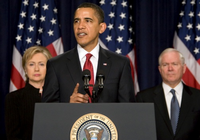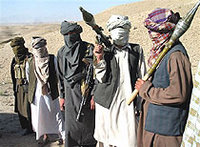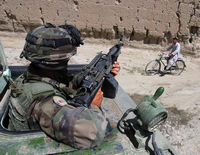
During the last several weeks, Americans have found themselves back in the middle of a fierce debate over our continuing military effort in Afghanistan. What was Bush’s forgotten war had, until recently, seemed quite safely transformed in public opinion into Obama’s “war of necessity.” Now, because of Gen. Stanley McChrystal’s request for significantly more troops, coming on the heels of his public declaration that the Taliban are essentially “winning,” the ruling Democrats have suddenly been thrust back into “quagmire” mode. Predictably, we are once again awash in feverish Boomer analogies to Vietnam, despite the pronounced absence in Afghanistan of any […]




